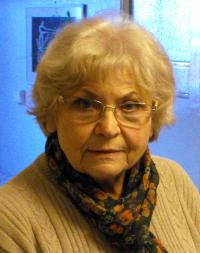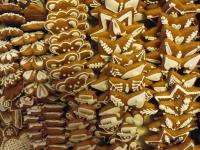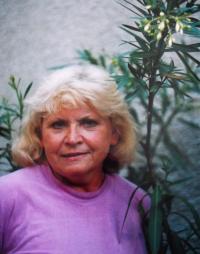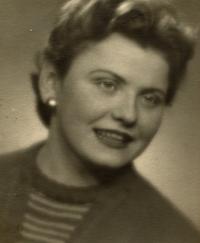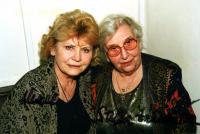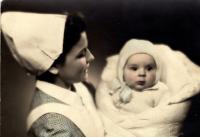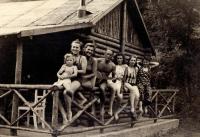Podprůhon was like one big family, everyone knew each other, doors were never locked

Stáhnout obrázek
Alena Satynková, alias Alenka z Vlachovky, was born in 1936 in the close-knit and populous mining colony of Podprůhon, the heart of the miners‘ and steelworkers‘ city of Kladno, as the fourth generation in the family house built by her great grandparents. Although she successfully graduated from the Medical School in Kladno, a hearing handicap barred her from becoming a nurse, and so she started work as a laboratory technician at a WHO branch in Veleslavín. She married a border guard whom she met at a Socialist holiday work centre in Strážný in the Šumava (Bohemian Forest) mountains. Her husband moved to the witness‘s native Podprůhon, where she bore him two sons. Alena Satynková refused to join the Communist Party. Family differences in political opinion came to a peak during the events of August 1968, when the male part of the family actively participated in the People‘s Militias, and the following years brought bitter disillusionment. In the early 1990s Alena Satynková became a close friend of Stella Zázvorková, who often visited her and in 1994 invited her to co-author the cooking block of the television show Znovu na Vlachovce (Back to Vlachovka), which was broadcast until the year 2000.

